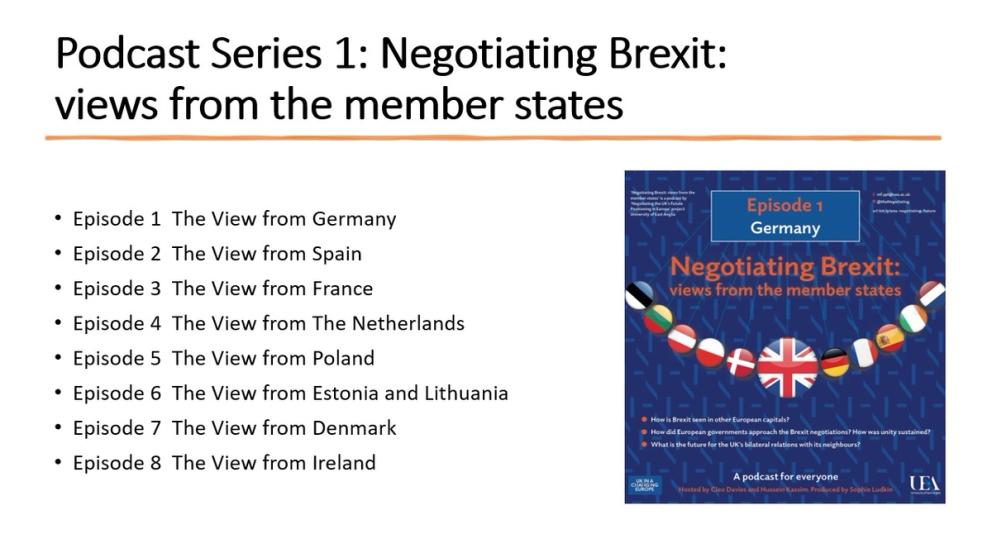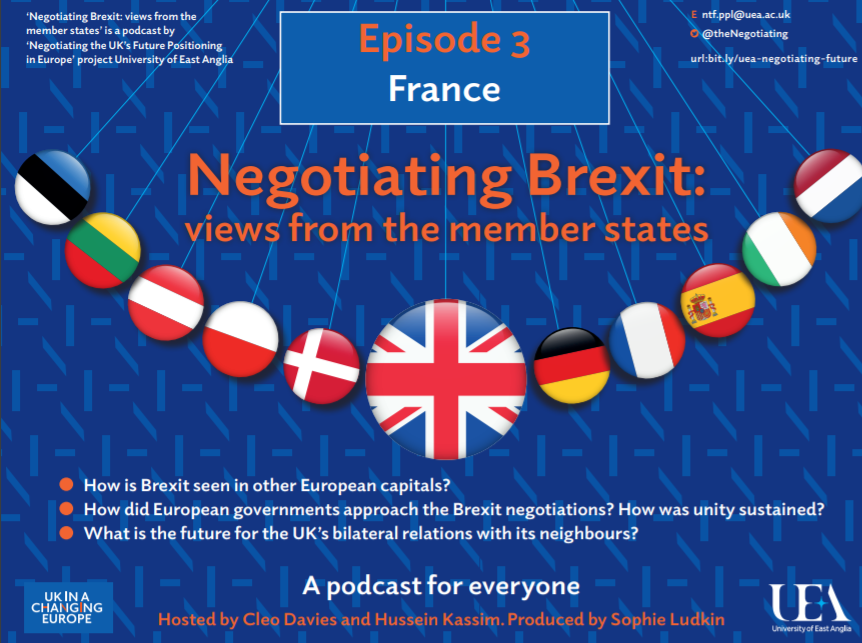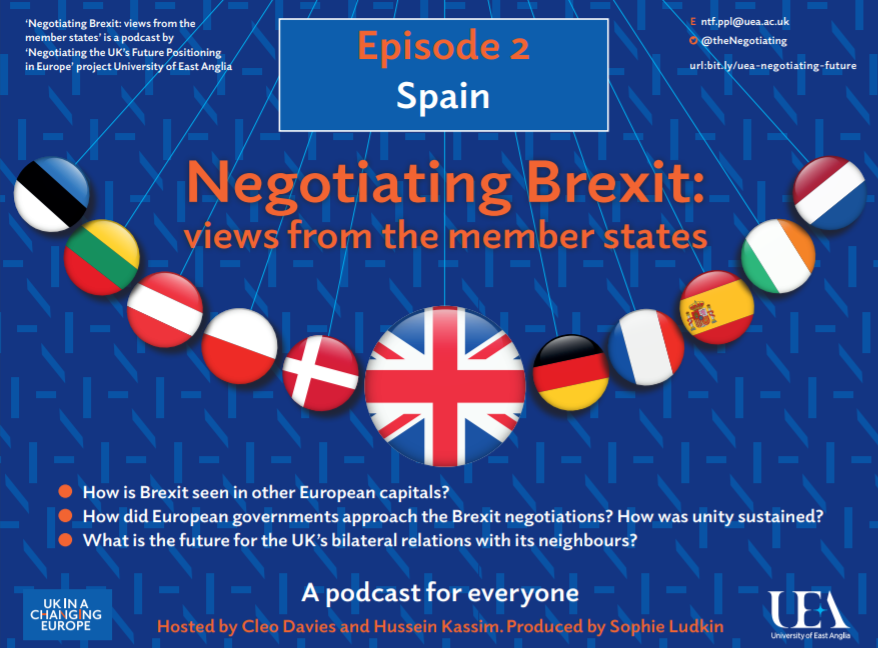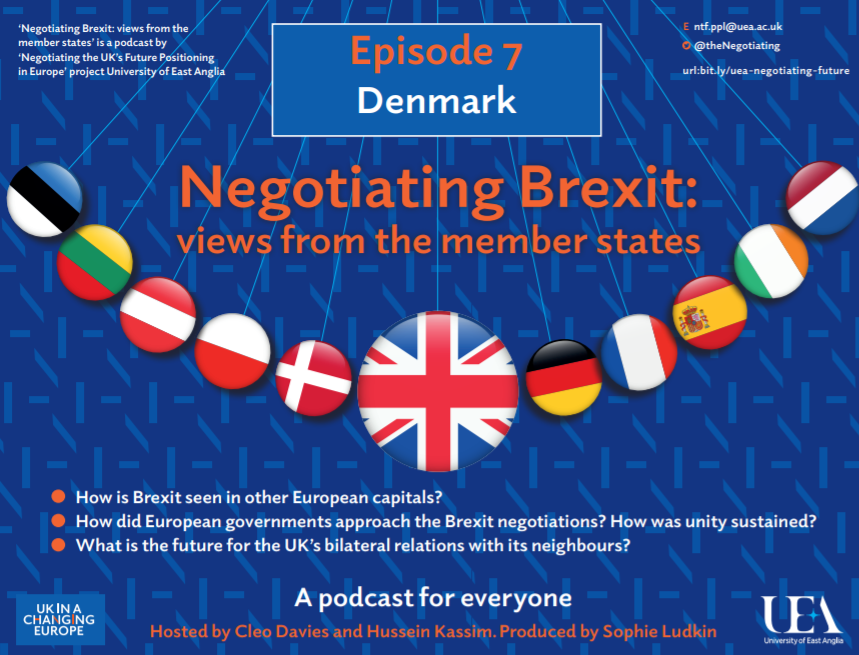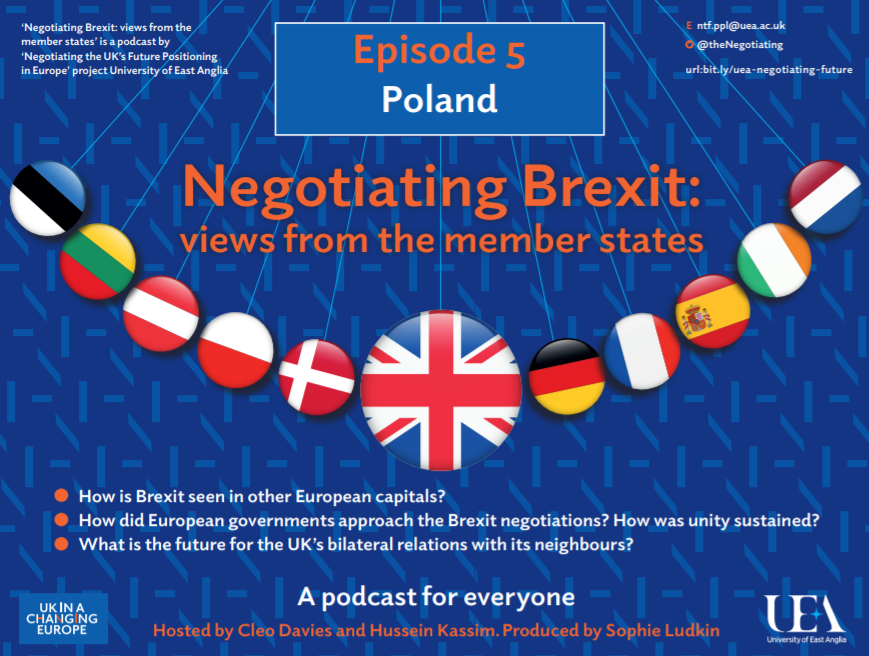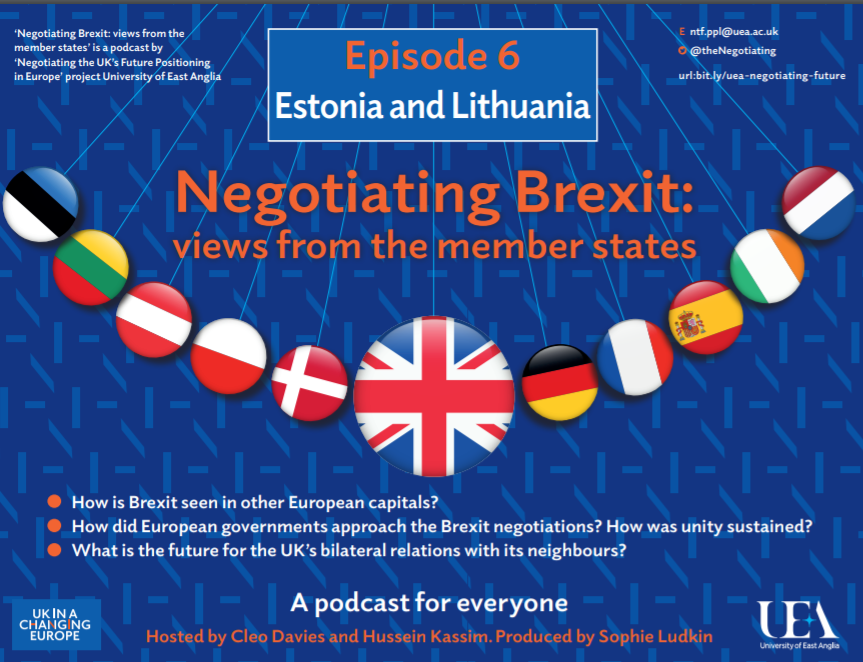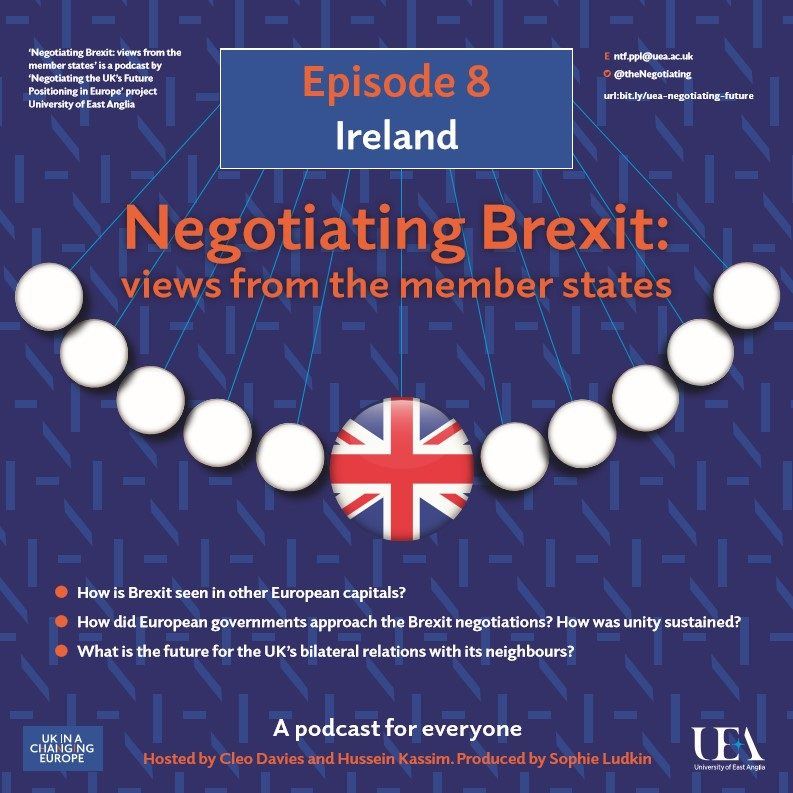Podcasts
Good Neighbours? The UK and Europe after Brexit
This is a podcast series for anyone interested in the UK’s departure from the EU. In each episode, we ask guest experts to explore how the UK has re-positioned itself in Europe and the world since it left the EU on 31 January 2020
How has UK foreign policy changed? Can the Withdrawal Agreement (WA) and the Trade and Cooperation Agreement (TCA) provide a solid basis for the UK-EU relations? How is the UK and its relationship with the EU viewed from European capitals? What are the possibilities and prospects for the UK-EU relations?
The view from Brussels
The view from Brussels With guests Stefaan De Rynck, former Senior Advisor to EU Chief Negotiator Michel Barnier on Brexit matters and Dan Ferrie, Press Officer for Brexit between Nov 2016 and Dec 2019 in the European Commission. Two insiders from the EU negotiation team offer insights on the EU’s approach to the negotiations on the UK’s withdrawal. They discuss the Trade and Cooperation Agreement (TCA), which forms the basis of the UK’s post-Brexit relationship with the EU. *This podcast episode was recorded in March 2021 shortly after the end of the transition period. Its purpose is to gather the recollections of some of those involved in the Brexit process on the EU side.* Other views are expressed during the course of the series. For a full range of perspectives on the negotiations, see the UK in a Changing Europe Brexit Witness Archive.
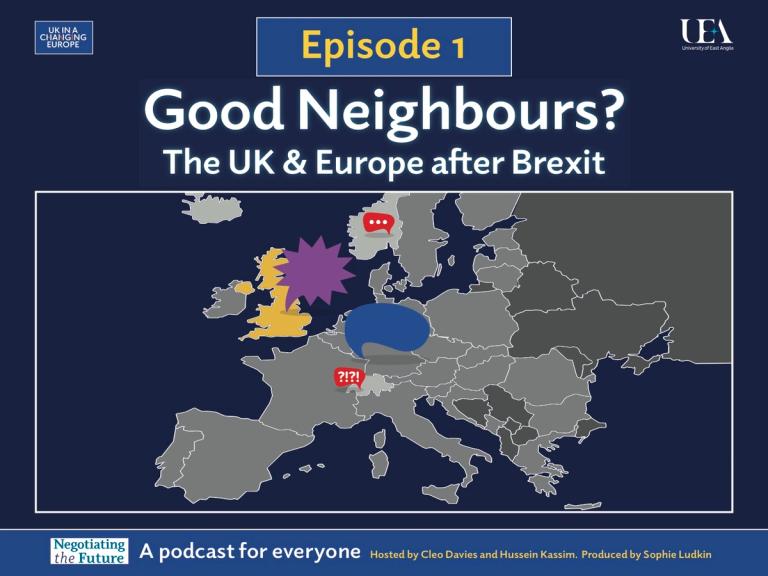
The Irish border
The Irish border With guests Katy Hayward, Professor of Political Sociology at Queen’s University Belfast and a Senior Fellow of UK in a Changing Europe and David Phinnemore, Professor of European Politics at Queen’s University Belfast
Two leading observers explain why the Irish border became such a difficult issue in the UK-EU negotiations. They discuss the views of the people and parties in Northern Ireland, and why the relationship between London and Dublin is so important.
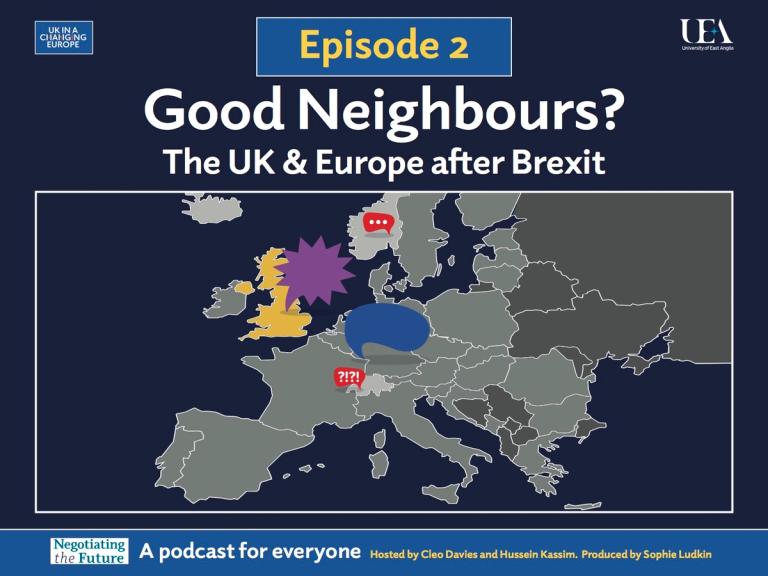
The EU-UK trade agreement: how different is it?
How different is it? With Georg Riekeles, Associate Director at the European Policy Centre and former diplomatic adviser to Michel Barnier, and Sieglinde Gstöhl, Professor of International Relations at the College of Europe in Bruges.
In this episode, a former adviser to Chief EU negotiator Michel Barnier and an expert on the EU’s neighbourhood policy compare the EU-UK Trade and Cooperation Agreement with the EU’s other trade agreements. They discuss how and why it differs, and look at how the EU’s relationship with the UK differs from others.
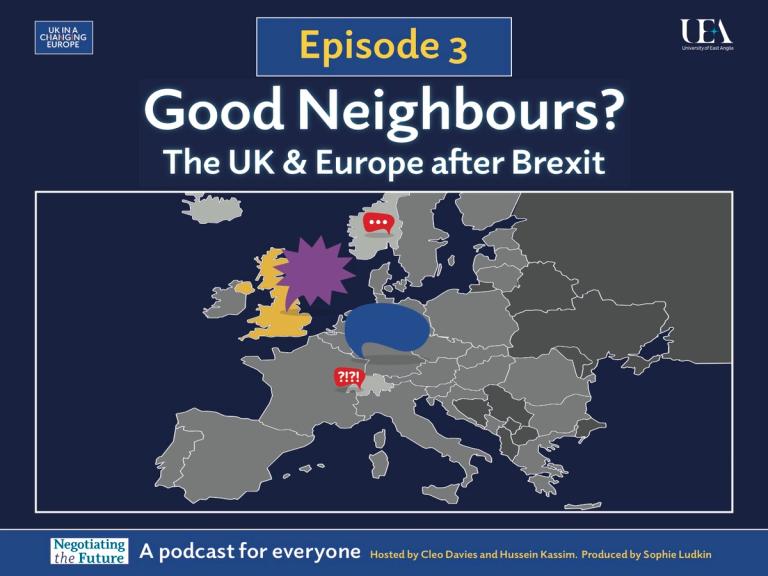
The Swiss model and beyond
The Swiss model and beyond With Stefanie Walter, Professor of International Relations and Political Economy at the University of Zurich, and Christian Frommelt, Director and Head of Research Politics at the Liechtenstein Institut.
What is the Swiss model, and how does it differ from the European Economic Area (EEA)? Why does the EU not like it? Is it under threat? What lessons can Liechtenstein teach about managing a trade and customs border with the EU?
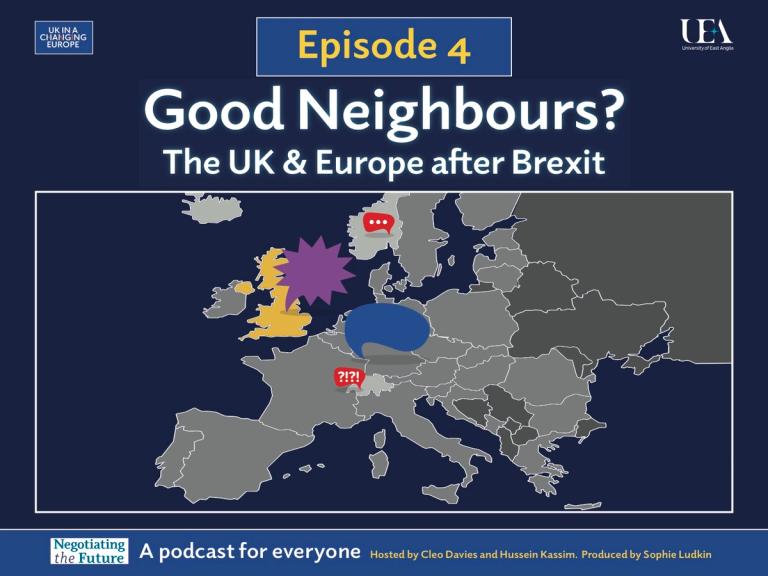
Norway, the EU and Brexit
Norway, the EU and Brexit With John Erik Fossum, Professor of Political Science at ARENA Centre for European Studies at the University of Oslo, Merethe Dotterud Leiren, Research Director at CICERO (Center for International Climate Research) in Oslo, and Christopher Lord, Professor at ARENA Centre for European Studies at the University of Oslo.
This episode discusses the pros and cons of the Norwegian model. It explores what Norway’s relationship with the EU tells us about the nature of the EU and the situation of a non-member. It also considers how Brexit has affected UK-Norway-EU relations in energy and climate change.
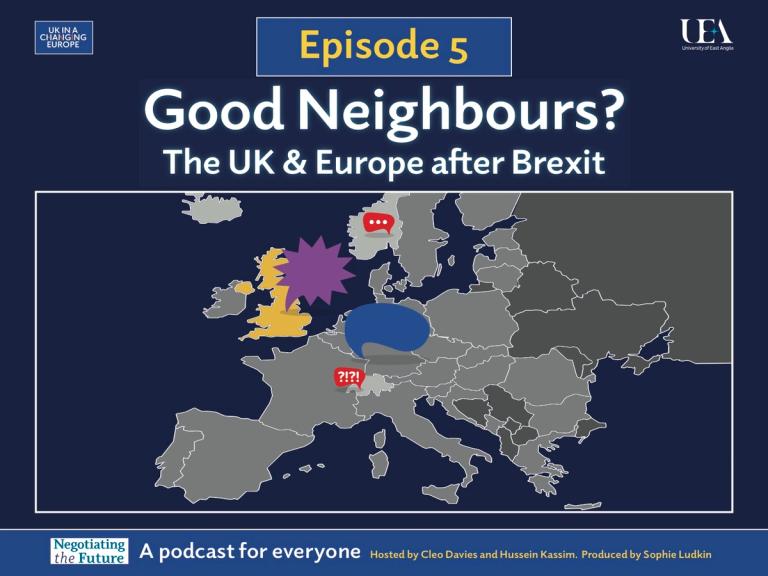
Beyond Europe? The UK’s foreign policy after Brexit
Beyond Europe? With Richard Whitman, Professor of Politics and International Relations at the University of Kent and The Rt Hon. the Baroness Neville-Jones DCMG of the House of Lords.
This episode looks at UK foreign policy before and after Brexit, and where ‘Europe’ fits. It explores how UK foreign policy evolved over the four decades of membership. It also considers UK foreign policy since Brexit.
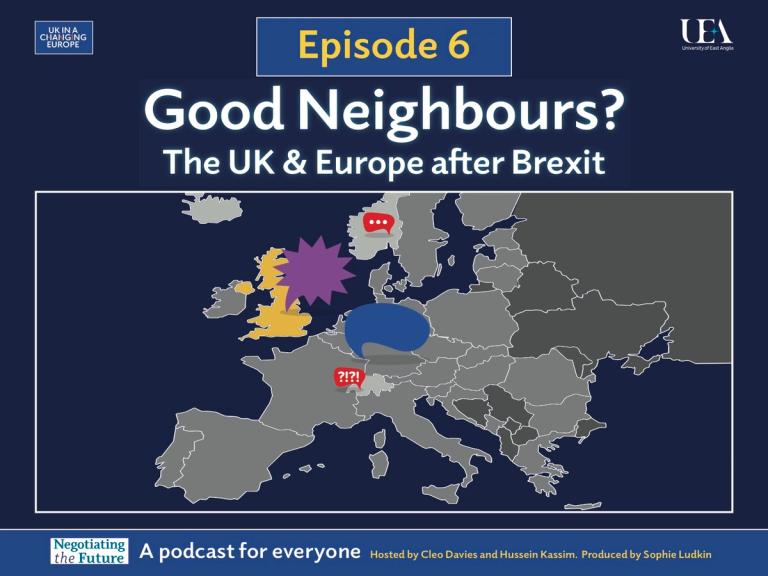
After Brexit: whatever happened to the Anglosphere?
Anglosphere? With Michael Kenny, Professor at POLIS at the University of Cambridge; Leslie Vinjamuri, Director of the US and the Americas Programme at Chatham House; and Srdjan Vucetic, Associate Professor at the Graduate School of Public and International Affairs, University of Ottawa
This episode looks at the Anglosphere. It discusses how it has influenced the UK’s relationship with Europe and the UK’s post-Brexit foreign policy, and the extent to which it’s a political programme.
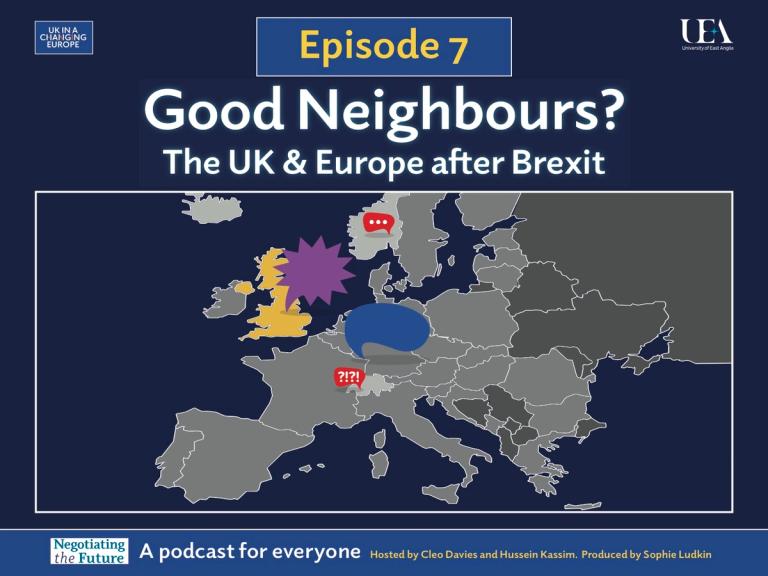
'After Brexit: What has changed?'
‘After Brexit: What has changed?’ is a podcast series for anyone interested in the UK’s departure from the EU. In each episode, we ask guest experts to explain the issues, describe what has changed and why, and to discuss the future prospects for UK divergence.
A podcast hosted by Cleo Davies and Hussein Kassim, and produced by Sophie Ludkin
'After Brexit: What has changed?'
Competition Policy, Consumer Protection and Public Procurement
Competition Policy, Consumer Protection and Public Procurement
In conversation with: Professor Amelia Fletcher, Professor of Competition Policy, Norwich Business School, University of East Anglia, Professor Albert Sánchez-Graells, Professor of Economic Law, University of Bristol Law School, University of Bristol and Professor Andreas Stephan, Professor of Competition Law and Head of School, School of Law, University of East Anglia
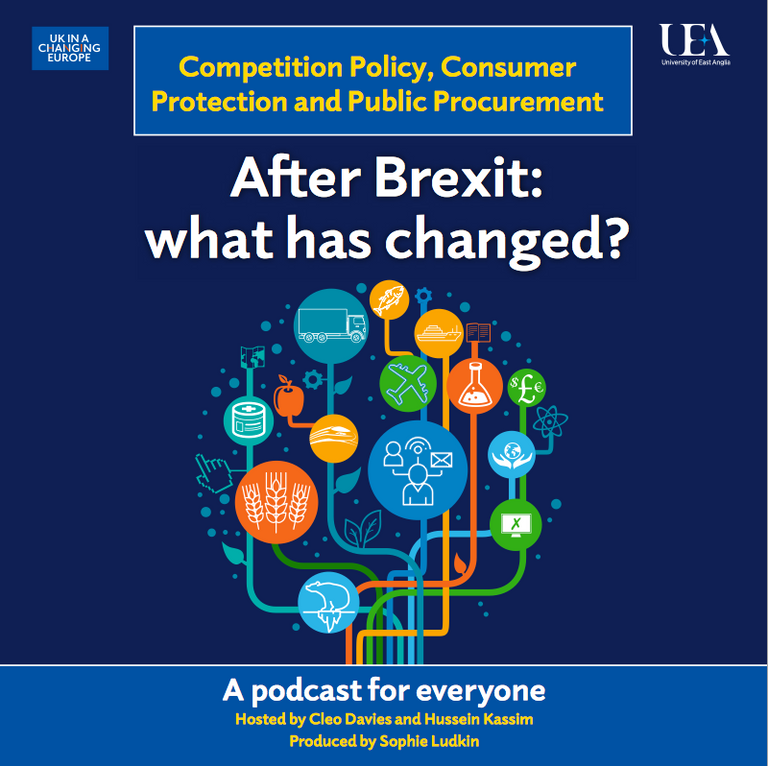
Environmental Policy, Climate Change, Energy and Renewables
Environmental Policy, Climate Change, Energy and Renewables
With Dr Pierre Bocquillon, Lecturer in EU Politics and Policy, School of Politics, Philosophy, Language and Communication Studies, University of East Anglia, Professor Charlotte Burns, Professor of Politics, Department of Politics and International Relations, Director of White Rose Doctoral Training Partnership, University of Sheffield and Dr Brendan Moore, Senior Research Associate, School of Environmental Sciences, University of East Anglia
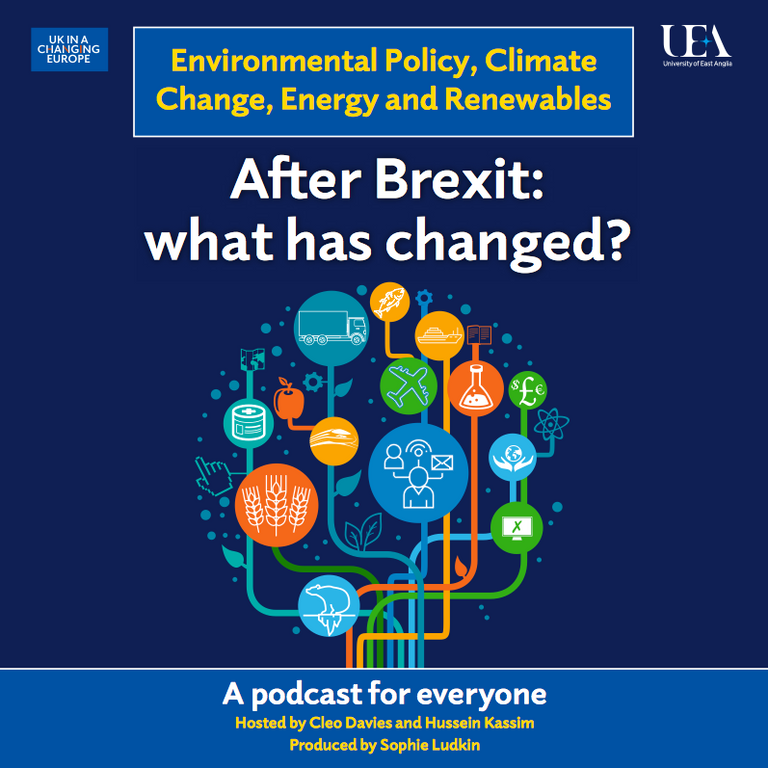
The Irish Border
With Professor Katy Hayward, Professor of Political Sociology at Queen’s University Belfast, and Senior Fellow, the UK in a Changing Europe
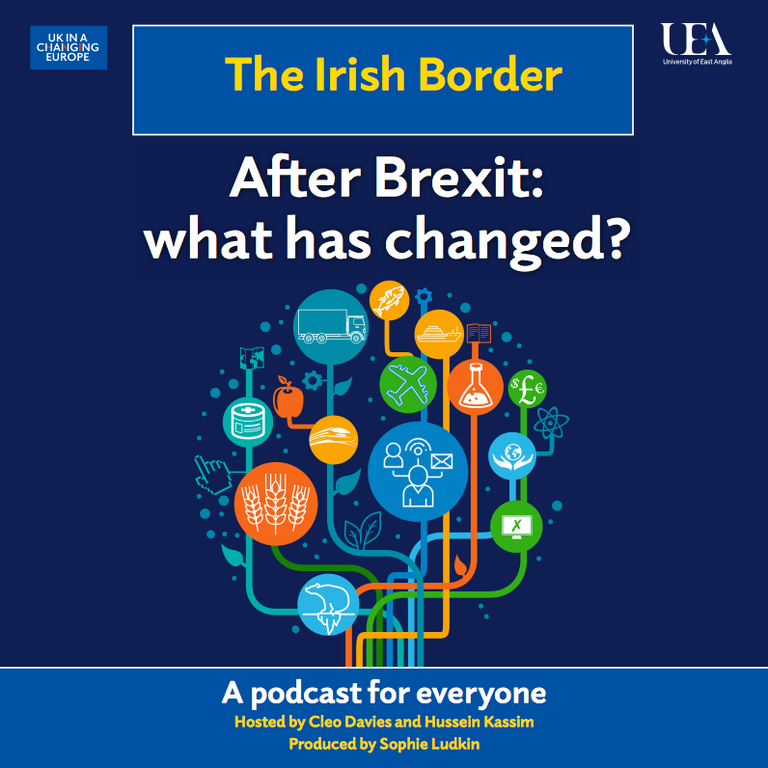
Fisheries
With Dr Christopher Huggins, Associate Professor in Politics, School of Social Sciences and Humanities, University of Suffolk
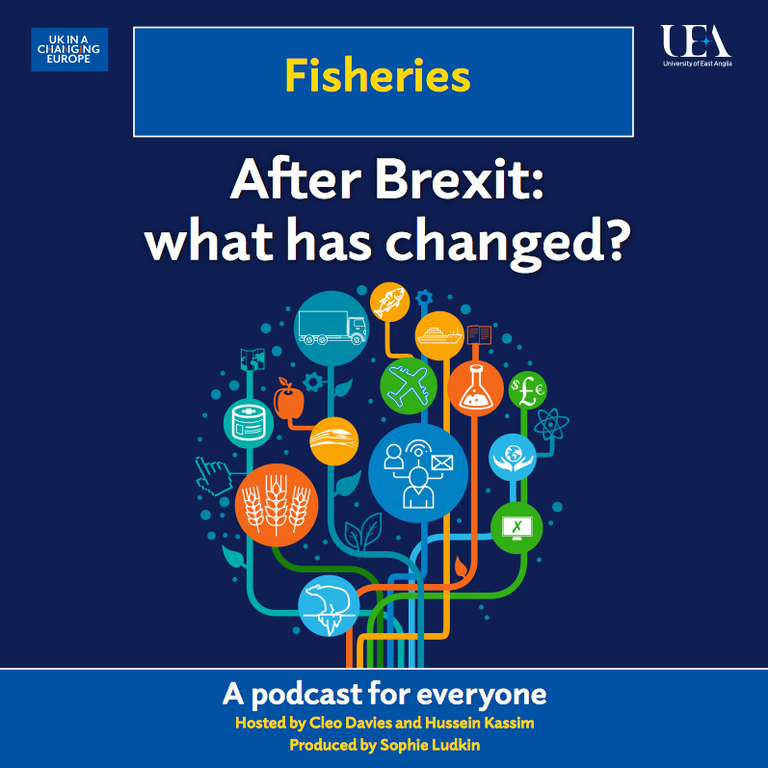
Data And Digital Regulation
With Professor Amelia Fletcher, Professor of Competition Policy, Norwich Business School, University of East Anglia and Dr Karen McCullagh, Lecturer in IT, IP and Media Law, the University of East Anglia
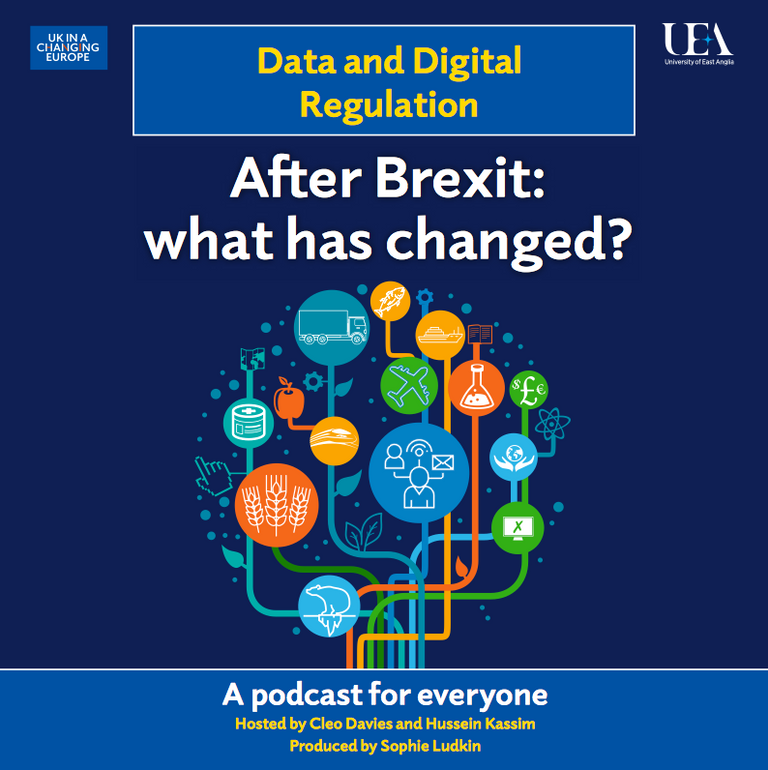
Immigration And Asylum Policy
with Professor Catherine Barnard, Professor of European Union and Labour Law, Faculty of Law, University of Cambridge, and Senior Fellow, The UK in a Changing Europe, and Professor Steve Peers, Professor of EU Law, Human Rights Law and World Trade Law, University of Essex
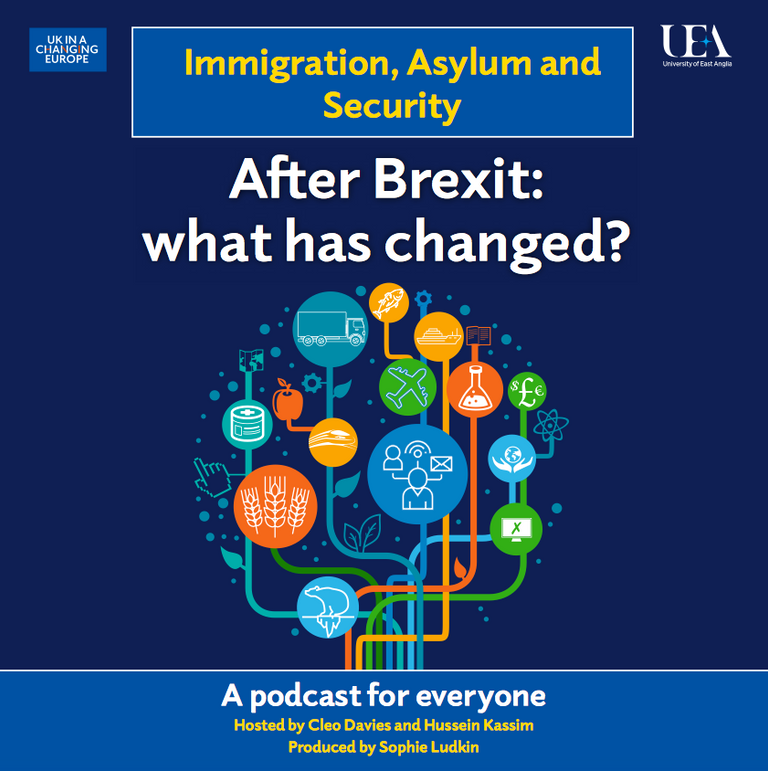
Food Safety & Security
with Dr Tola Amodu, Lecturer in Law, School of Law, University of East Anglia and Professor Andrew Fearne, Professor of Value Chain Management, Norwich Business School, University of East Anglia
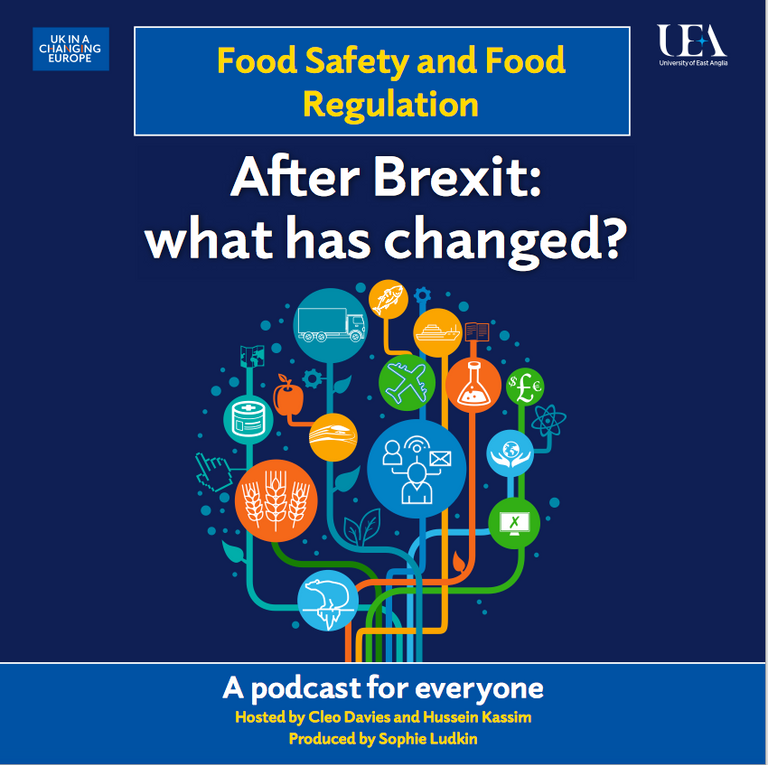
Financial Services
with Professor Sarah Hall, Professor of Economic Geography, Faculty of Social Sciences, University of Nottingham and Senior Fellow, The UK in a Changing Europe and Dr Scott James, Reader in Political Economy, King’s College London
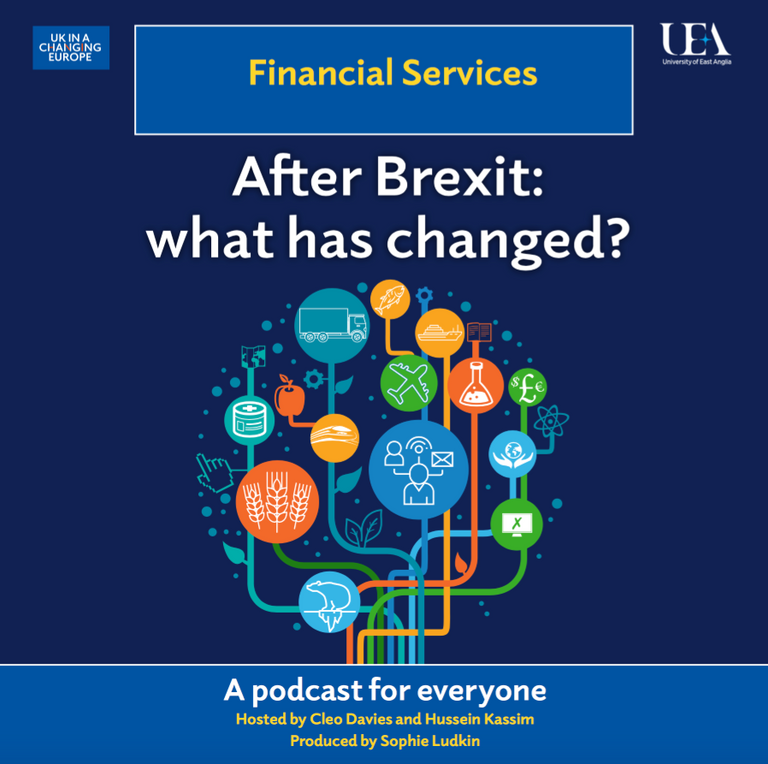
Transport Policy
with Professor Sarah Hall, Professor of Economic Geography, Faculty of Social Sciences, University of Nottingham and Senior Fellow, The UK in a Changing Europe, Dr Martin Heneghan, Research Fellow, Faculty of Social Sciences, University of Nottingham and Professor Hussein Kassim, Professor of Politics, School of Politics, Philosophy, Language and Communication Studies University of East Anglia, and Senior Fellow, The UK in a Changing Europe
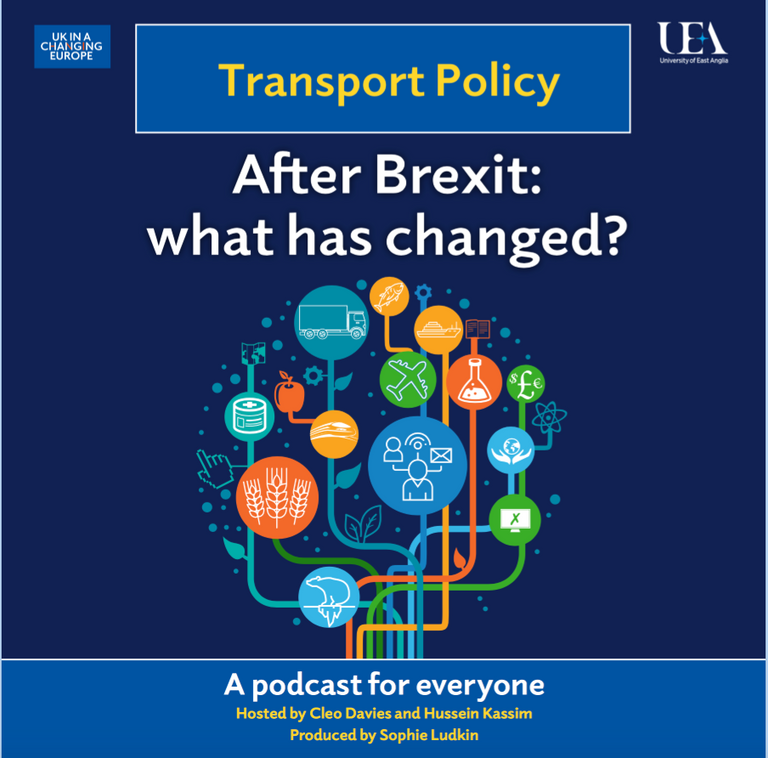
Overarching Architecture of Regulation
with Professor Michael Harker, Professor of Law, School of Law, University of East Anglia and Dr Kathryn Wright, Senior Lecturer in Law, York Law School, University of York
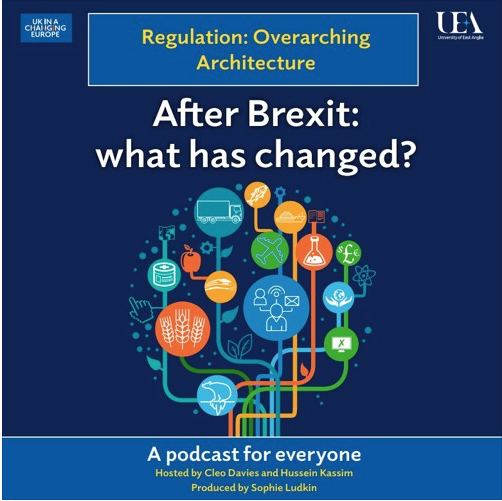
Trade
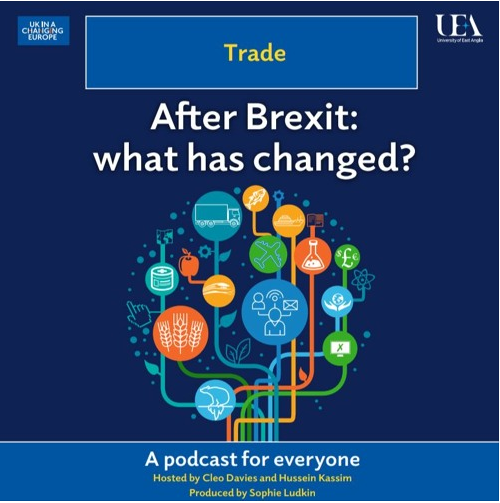
Intellectual Property
with Dr Sabine Jacques, Associate Professor in IP, IT and Media Law, School of Law, the University of East Anglia
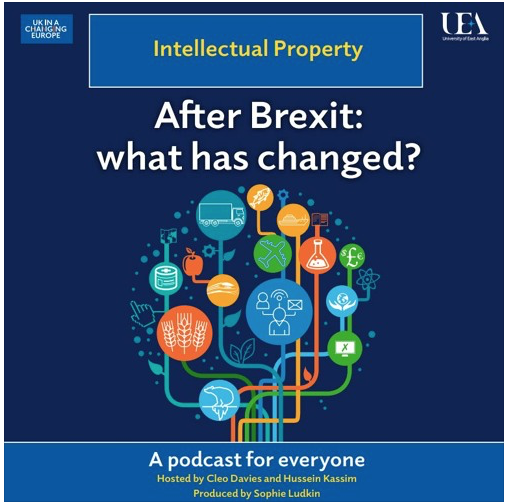
Negotiating Brexit: views from the Member States
The series ‘Negotiating Brexit: views from the Member States’ looks at how European capitals responded to the UK referendum vote, how European governments approached the negotiations, what accounts for unity on the EU side, and the future of the UK’s bilateral relations.
A podcast hosted by Cleo Davies and Hussein Kassim, and produced by Sophie Ludkin.
Negotiating Brexit: the view from Germany
How does Germany view Brexit? With Eva G Heidbreder from the Otto-von Guericke University in Magdeburg and Nicolai von Ondarza from the German Institute for International and Security Affairs in Berlin
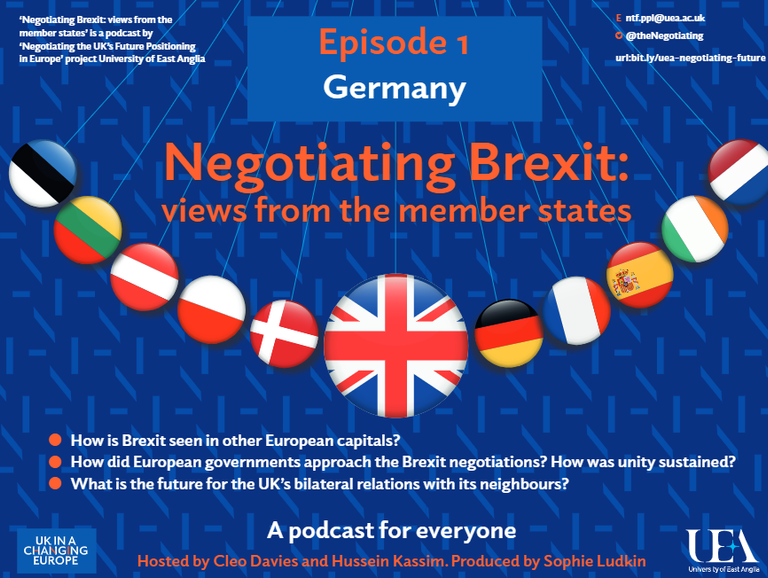
Negotiating Brexit: the view from Spain
How does Spain view Brexit? How did Madrid approach the negotiations? Salvador Llaudes from the German Council on Foreign Relations and Ignacio Molina of the Autonomous University of Madrid and The Elcano Institute
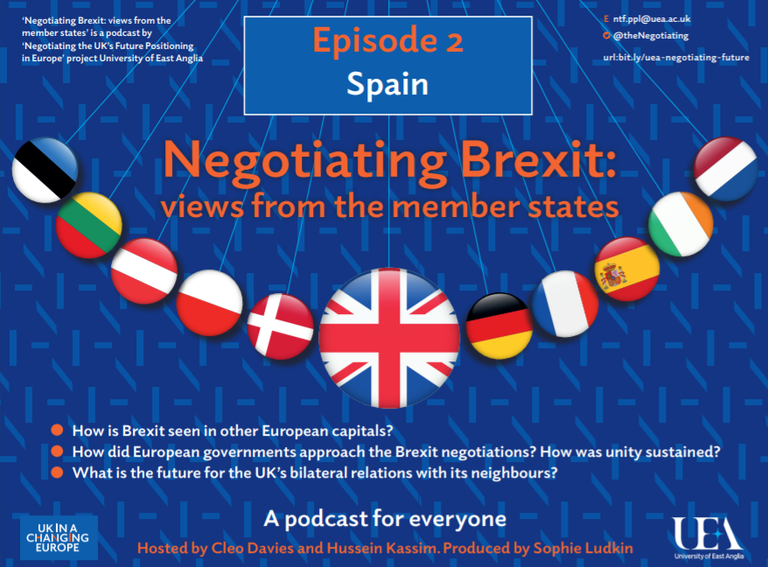
Negotiating Brexit: the view from France
How does France view Brexit? How did Paris approach the negotiations? What are the prospects for future relations? Christian Lequesne from Sciences Po Paris and Pauline Schnapper from Sorbonne Nouvelle University in Paris
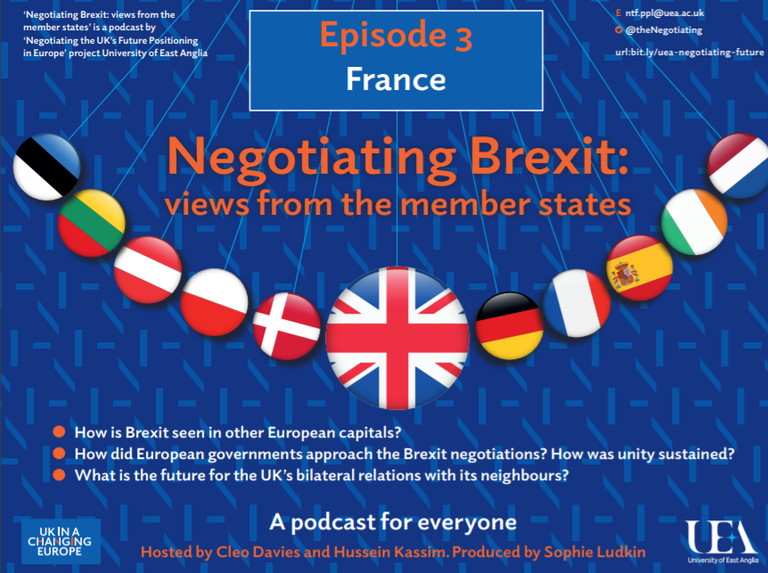
Negotiating Brexit: the view from The Netherlands
How does The Netherlands view Brexit? How did The Hague approach the negotiations? Catherine de Vries from Bocconi University in Milan and Rem Korteweg from Clingendael, The Netherlands Institute of International Relations
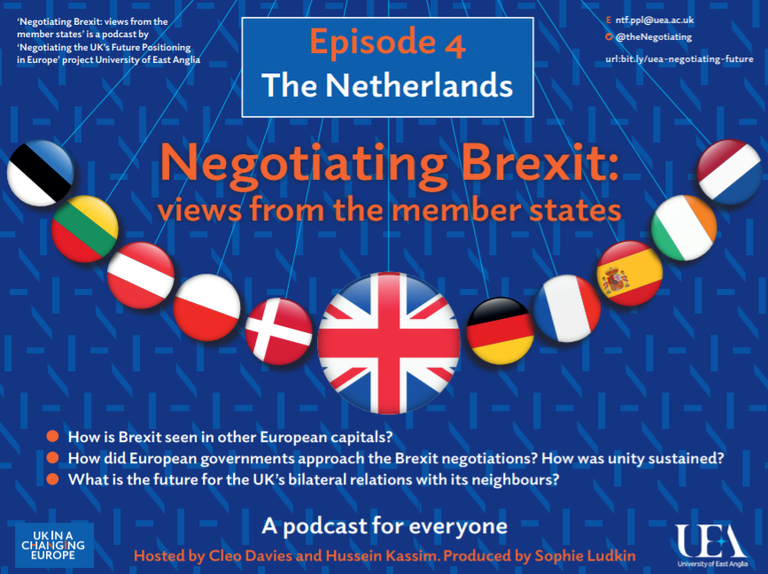
Negotiating Brexit: the view from Poland
How does Poland view Brexit? How did Warsaw approach the negotiations? Przemysław Biskup from the Polish Institute of International Affairs in Warsaw and Natasza Styczyńska from the Jagiellonian University in Krakow
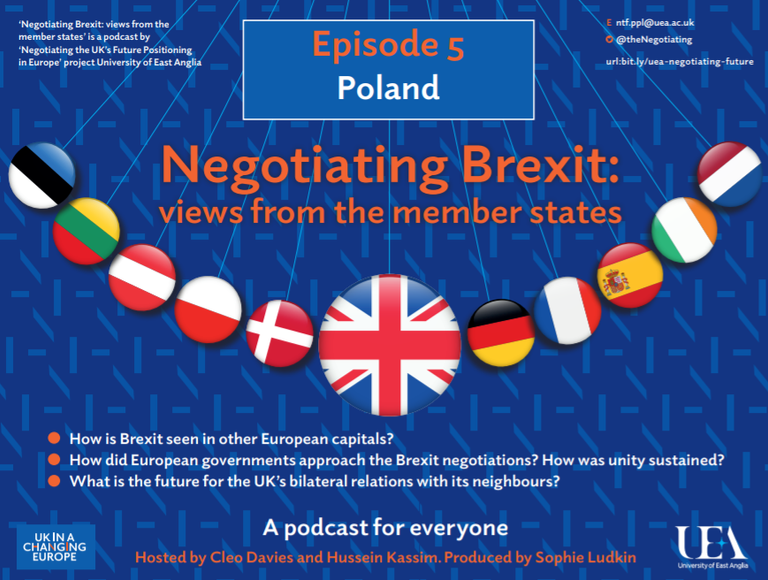
Negotiating Brexit: the view from Estonia and Lithuania
How do Estonia and Lithuania view Brexit? How did Tallinn and Vilnius approach the negotiations? Piret Kuusik from the Estonian Foreign Policy Institute/ICDS in Tallinn and Ramūnas Vilpišauskas from Vilnius University
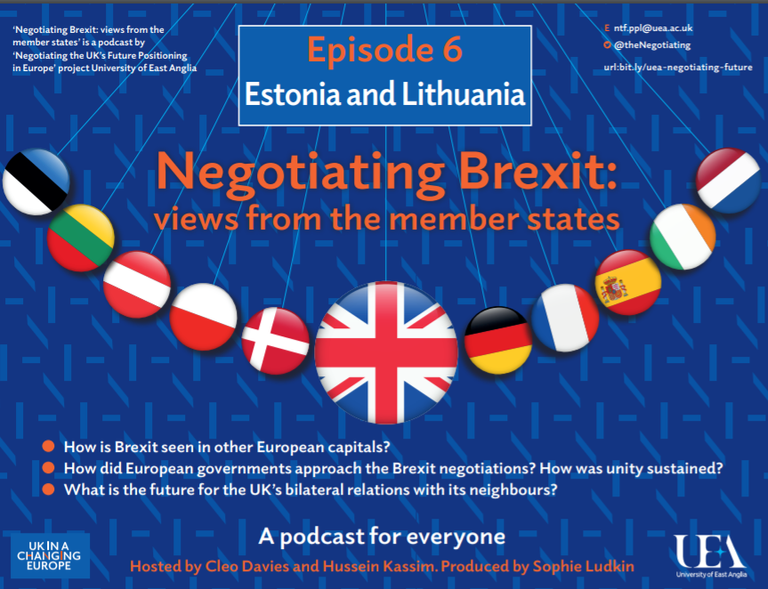
Negotiating Brexit: the view from Denmark
How does Denmark view Brexit? How did Copenhagen approach the negotiations? What are the prospects for the future relationship? Rebecca Adler-Nissen, from the University of Copenhagen and Sara Hagemann from the London School of Economics
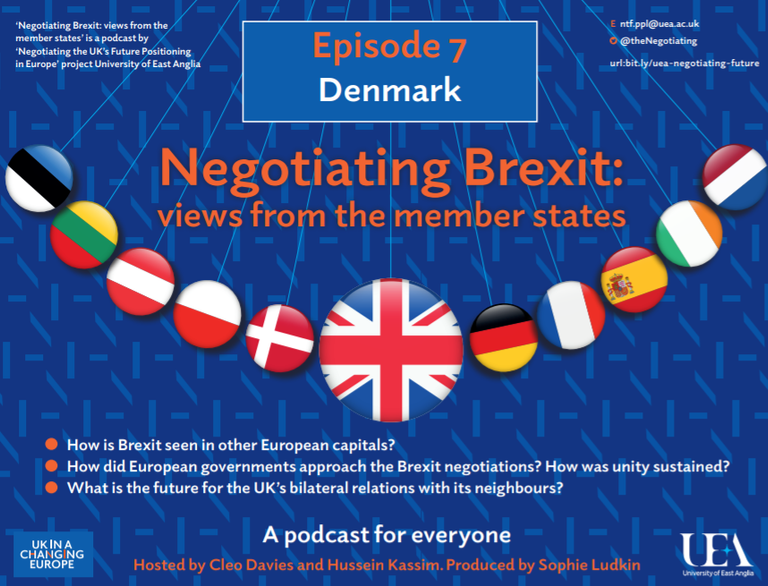
Negotiating Brexit: the view from Ireland
Ireland has a very close and particular relationship to the UK. How did Ireland view the UK referendum result and Brexit? How are relations likely to develop? With Brigid Laffan from the EUI in Florence and Mary C. Murphy from University College Cork
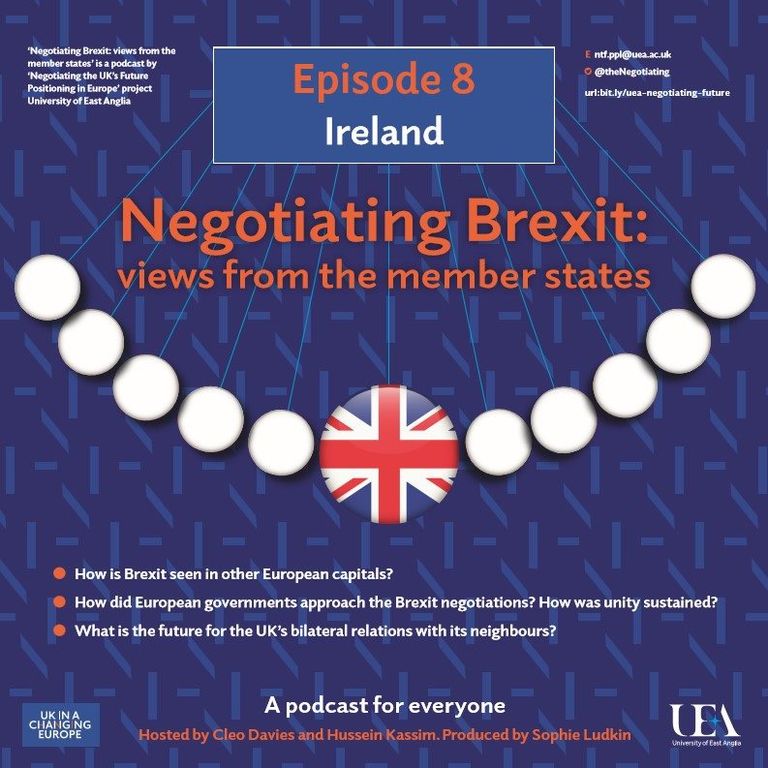
Summary: The view from the Member States
Listen to the Podcast
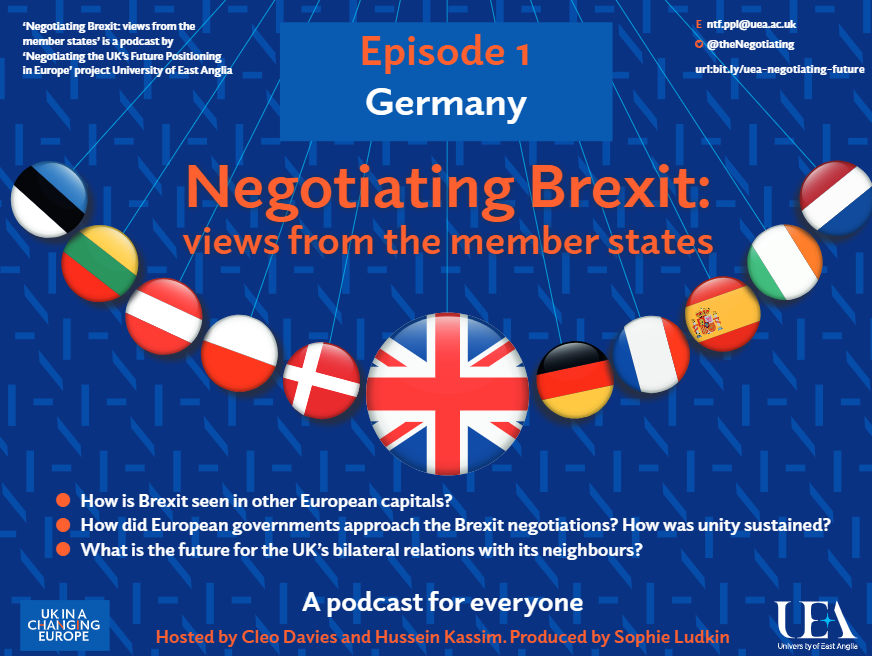
The view from The Netherlands
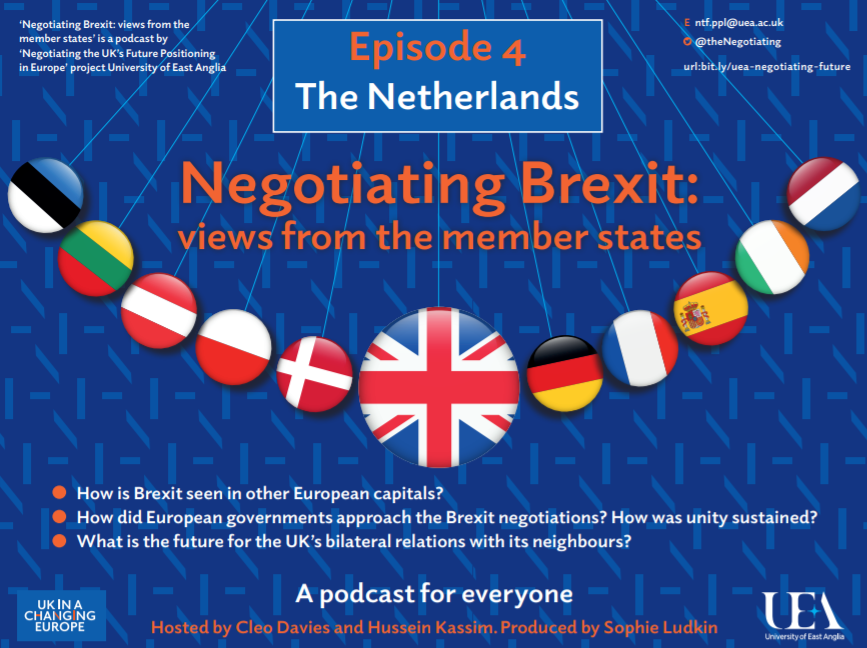
The view from The Netherlands

